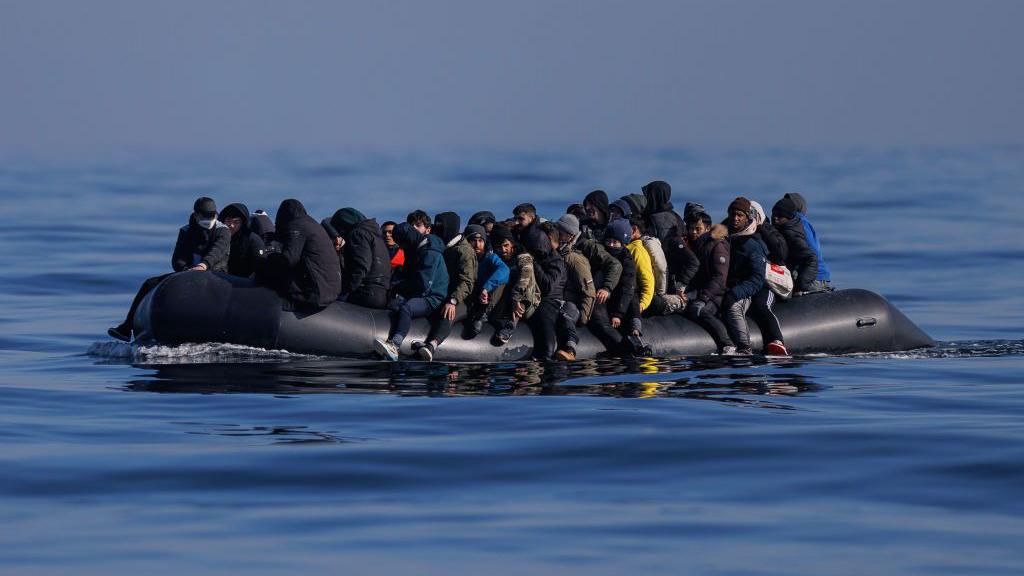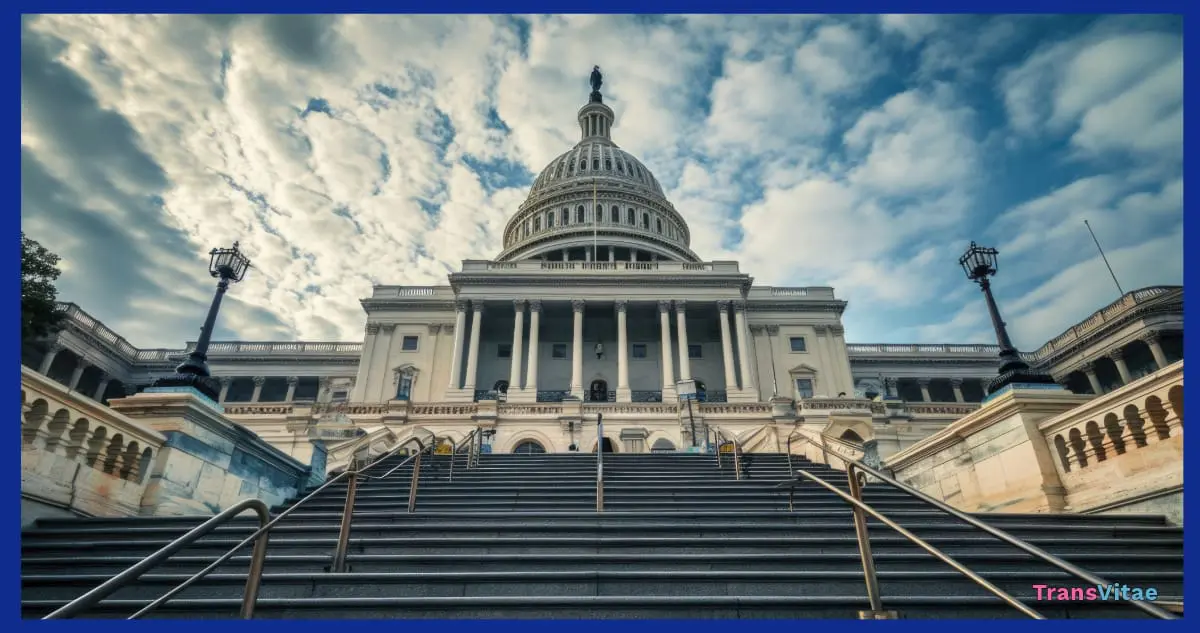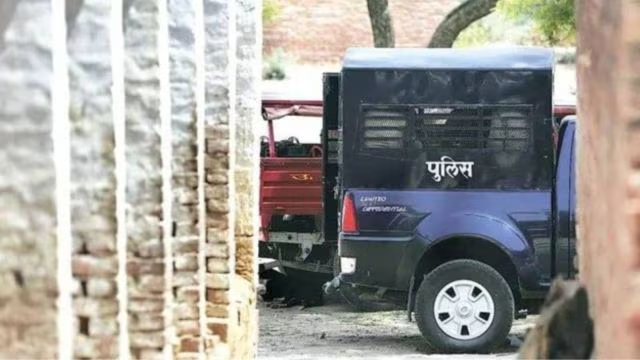In a concerted effort to address the complexities of illegal migration, the British government, under Prime Minister Keir Starmer, has intensified its focus on dismantling criminal networks in the Western Balkans. Announced on May 15, 2025, this initiative targets the sophisticated operations facilitating illegal migration, particularly from countries like Albania, Kosovo, North Macedonia, and Montenegro. This article delves into the multifaceted approach Britain is adopting, exploring the political, social, and economic dimensions of the issue, alongside the hidden truths and research that underpin these efforts.
The Political Context: Starmer’s Immigration Strategy
Keir Starmer’s government faces mounting pressure to demonstrate control over both legal and illegal immigration. The rise of Nigel Farage’s Reform Party, known for its stringent anti-immigration stance, has shifted the political landscape, with polls indicating a loss of ground for Labour. Starmer’s announcement comes days after unveiling reforms aimed at reducing legal migration, signaling a dual strategy to address public concerns about immigration.
“We cannot allow our country to become an island of strangers,” Starmer declared, emphasizing the need for tougher immigration rules.
This political backdrop underscores the urgency of Starmer’s initiatives. By targeting organised crime in the Western Balkans, he aims to curb illegal migration flows while reinforcing his government’s commitment to border security.
Pressure from Public Opinion
Public sentiment in the UK has increasingly leaned toward stricter immigration policies. Surveys, such as those conducted by YouGov in 2024, reveal that over 60% of Britons believe immigration levels are too high. This sentiment has fueled the popularity of parties like Reform UK, which advocate for drastic reductions in both legal and illegal immigration. Starmer’s focus on criminal networks is a calculated move to address these concerns without alienating Labour’s progressive base.
Historical Context of Immigration Policies
Britain’s immigration policies have evolved significantly since the Brexit referendum in 2016, which was driven in part by concerns over uncontrolled migration. The Conservative government’s deportation deal with Albania in 2022 marked a turning point, significantly reducing the number of Albanians arriving via small boats. Starmer’s current efforts build on this foundation, expanding cooperation with Balkan nations to tackle the root causes of illegal migration.
The Western Balkans: A Hub for Organised Crime
The Western Balkans, comprising countries like Albania, Kosovo, North Macedonia, and Montenegro, have long been identified as key transit points for illegal migration into Europe. Criminal networks in these regions exploit vulnerabilities such as weak border controls, corruption, and economic instability to facilitate human smuggling and trafficking.
The Role of Criminal Networks
Organised crime groups in the Western Balkans operate with remarkable sophistication, leveraging technology and international connections to smuggle migrants across borders. According to a 2023 Europol report, these networks generate billions of euros annually, often collaborating with local authorities to evade detection. The smuggling of Albanian nationals to the UK, particularly via small boats across the English Channel, has been a significant concern.
In 2022, Albanians constituted the largest group of migrants arriving in the UK on small boats, with over 12,000 recorded crossings. However, the deportation deal with Albania led to a sharp decline, with numbers dropping to under 2,000 in 2024. Starmer’s new measures aim to sustain this progress by targeting the financial and logistical infrastructure of these criminal networks.
Money Laundering and Forged Documents
A critical aspect of Starmer’s strategy involves tackling money laundering and the use of forged documents. Criminal networks rely on illicit financial flows to fund their operations, often channeling profits through complex international networks. The UK’s donation of two forgery detection machines to Albania is a practical step toward disrupting these activities.
“By equipping our partners with the tools to detect fake passports, we’re cutting off a key artery of the smuggling trade,” a Home Office spokesperson noted.
Research from the Financial Action Task Force (FATF) highlights the Western Balkans as a region vulnerable to money laundering due to inadequate regulatory frameworks. Starmer’s initiative to strengthen financial oversight in Albania and expand the joint migration task force to North Macedonia and Montenegro reflects a broader effort to address these systemic weaknesses.
Britain’s Expanded Measures in Albania
Starmer’s first official visit to Albania on May 15, 2025, marked a significant milestone in UK-Albania relations. The visit focused on reinforcing bilateral cooperation to combat illegal migration and organised crime.
Preventing Re-Entry of Deported Nationals
One of the key measures announced during the visit is a mechanism to prevent Albanian nationals from returning to the UK after deportation. This builds on the 2022 deportation agreement, which facilitated the return of thousands of Albanians. The new measures include enhanced data-sharing protocols to track deportees and stricter penalties for those attempting to re-enter the UK illegally.
According to the UK Home Office, approximately 70% of deported Albanians in 2023 attempted to re-enter Europe within a year. By strengthening border controls and improving coordination with Albanian authorities, Starmer aims to reduce this recidivism rate.
Technological Support: Forgery Detection
The donation of two forgery detection machines underscores the role of technology in combating illegal migration. These machines, equipped with advanced scanning capabilities, can identify counterfeit passports and other identity documents with high accuracy. Albanian border officials have already reported a 20% increase in the detection of forged documents since the introduction of similar equipment in 2024.
Joint Migration Task Force Expansion
The expansion of the joint migration task force to include North Macedonia and Montenegro is a strategic move to regionalize the fight against organised crime. The task force, initially comprising the UK, Albania, and Kosovo, has been instrumental in sharing intelligence and coordinating operations. By including North Macedonia and Montenegro, the task force aims to address the broader network of smuggling routes that traverse the Western Balkans.
A 2024 UNODC report identified North Macedonia as a growing hub for migrant smuggling, with criminal groups exploiting its proximity to Greece and Serbia. Montenegro, meanwhile, has emerged as a transit point for migrants seeking to reach Western Europe via Croatia. The task force’s expansion is expected to enhance regional cooperation and disrupt these emerging routes.
The Broader Implications for Legal Migration
While Starmer’s Balkan initiative focuses on illegal migration, it is part of a broader strategy to address public concerns about overall immigration levels. On May 13, 2025, Starmer announced plans to significantly reduce net legal migration, citing the need to preserve social cohesion.
Legal Migration Challenges
Legal migration accounts for the vast majority of arrivals to the UK, with net migration reaching 764,000 in 2023, according to the Office for National Statistics. The influx of international students, skilled workers, and family reunification cases has strained public services, fueling debates about the sustainability of current policies.
Starmer’s reforms include tightening visa requirements, increasing salary thresholds for skilled worker visas, and limiting family reunification pathways. These measures have drawn criticism from business groups, who argue that they could exacerbate labor shortages in sectors like healthcare and technology.
Social Cohesion and Public Perception
The phrase “an island of strangers” used by Starmer reflects a growing concern about social cohesion in the UK. Studies, such as a 2024 report by the Migration Observatory, suggest that rapid demographic changes in certain communities have led to tensions over resource allocation and cultural integration. By addressing both legal and illegal migration, Starmer seeks to balance economic needs with public expectations.
Hidden Truths and Research Insights
Beneath the surface of Starmer’s initiatives lie complex realities that shape the migration landscape. Research and investigations reveal the interplay of economic, political, and social factors driving illegal migration from the Western Balkans.
Economic Push Factors
Economic disparity is a primary driver of migration from the Western Balkans. Albania, for instance, has a per capita GDP of approximately $6,000, compared to the UK’s $48,000. Unemployment rates in the region, particularly among youth, remain high, pushing many to seek opportunities abroad. Criminal networks exploit this desperation, offering passage to the UK for fees ranging from €5,000 to €20,000 per person.
A 2023 study by the International Organization for Migration (IOM) found that 40% of Albanian migrants cited economic hardship as their primary motivation for leaving. Addressing these root causes requires long-term investment in economic development, a challenge that Starmer’s initiatives only partially address.
Corruption and Governance Challenges
Corruption in the Western Balkans facilitates the operations of criminal networks. Transparency International’s 2024 Corruption Perceptions Index ranks Albania, North Macedonia, and Montenegro below the global average, highlighting systemic issues in governance. Bribes to border officials and lax enforcement of anti-smuggling laws enable criminal groups to operate with impunity.
Starmer’s focus on technological and financial cooperation aims to mitigate these issues, but experts argue that broader governance reforms are needed. “Without addressing corruption at its core, technological solutions are merely a bandage,” said Dr. Elena Petrovic, a Balkans expert at King’s College London.
The Human Cost of Smuggling
The human toll of illegal migration is often overlooked in policy discussions “‘The smuggling trade is not just a criminal enterprise; it’s a humanitarian crisis,” said Maria Alvarez, a human rights advocate with Amnesty International. The dangerous journeys, exploitation by smugglers, and uncertain futures in destination countries underscore the need for a holistic approach that prioritizes migrant safety and dignity.
Future Prospects and Challenges
Starmer’s initiatives represent a significant step toward disrupting organised immigration crime, but their success hinges on several factors.
Regional Cooperation
The inclusion of North Macedonia and Montenegro in the joint migration task force is a positive development, but effective regional cooperation requires sustained political will. Tensions between Balkan nations, coupled with varying levels of commitment to anti-smuggling efforts, could undermine the task force’s effectiveness.
Balancing Security and Human Rights
Critics argue that Starmer’s focus on security risks overshadowing the human rights of migrants. Deportation policies and stricter border controls may deter illegal migration but could also push vulnerable individuals into more dangerous routes. A 2024 UNHCR report warned that heightened enforcement in the Balkans has led to increased use of perilous land routes through Serbia and Bosnia.
Public Expectations vs. Practical Outcomes
Starmer’s ability to manage public expectations will be crucial. While his initiatives may reduce illegal migration, the broader issue of legal migration and its impact on public services remains contentious. Communicating the tangible benefits of these measures—such as reduced crime and enhanced border security—will be essential to maintaining public support.
Conclusion
Britain’s escalated efforts to tackle organised immigration crime in the Western Balkans reflect a multifaceted strategy to address one of the most pressing issues facing the UK. By targeting criminal networks, enhancing technological cooperation, and expanding regional partnerships, Prime Minister Keir Starmer aims to curb illegal migration while responding to public concerns about immigration. However, the success of these initiatives will depend on addressing the root causes of migration, balancing security with human rights, and navigating the complex political landscape at home and abroad. As the UK continues to grapple with these challenges, the Western Balkans remain a critical frontier in the global fight against organised crime and illegal migration.






























0 Comments